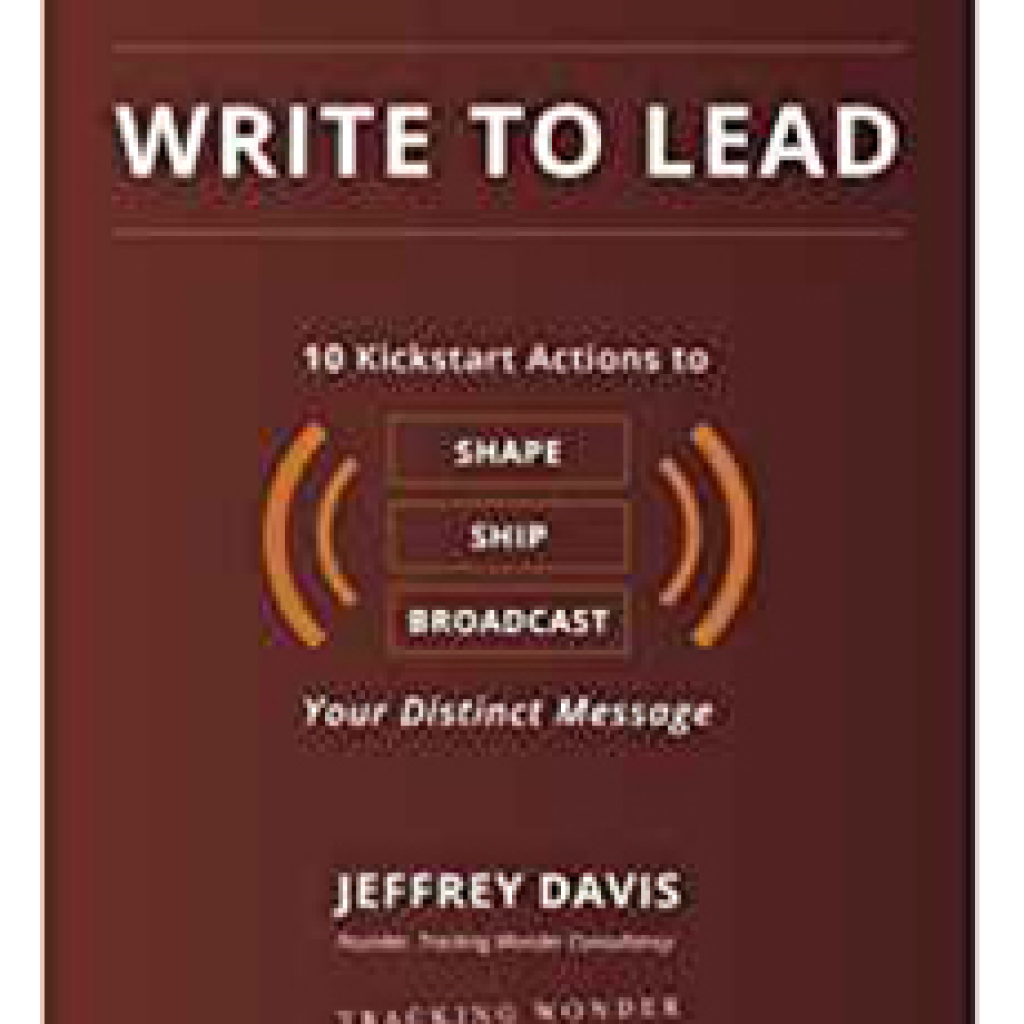Get past the resistance to write for impact

In a recent conversation, I connected with a bright HR manager in her thirties who shared her aspirations and inner struggles. She’s ready to move forward with her own ideas and business endeavor. Despite her intelligence, solid experience, and love of learning, she confided in feeling like an imposter at times. That feeling blocked her, she said, from developing her unique insights on pressing issues—from financial matters to the flawed dynamics of corporate hiring to the pervasive influence of digital advertising.
Her story struck a chord with me. She articulated her decision to take the plunge into entrepreneurship, starting with the launch of her beta website and beta entrepreneurial experiments. But she didn’t want to burn out and get caught up all over again in the hustle mindset to achieve at all costs. Her approach, marked by a commitment to authenticity over conformity, resonated with my own experiences and the ethos of Tracking Wonder.
6 Resistances to A Wise Rise to Lead
Many clients – leaders, startup founders, business owners, authors – express what I would call a Wise Rise. Maybe you can relate. You’re deeply committed to meeting the challenges necessary to grow people’s awareness of your unique point of view, services, or products so you can elevate them (rise) but with a more mindful expenditure of time, energy, resources, and pacing (wise).
Our conversation delved into the reasons why many individuals shy away from sharing their ideas with the world. We unearthed common fears and obstacles:
- Imposter Syndrome: The nagging sense of inadequacy and self-doubt that whispers, “Who am I to share this?”
- Fear of Criticism: The apprehension of being judged, challenged, or even scorned for daring to voice one’s opinions.
- Resource Concerns: The fear of investing time and effort into business endeavors with an uncertain return.
- Isolation: The reluctance to publish in an echo chamber, fearing a lack of engagement or resonance with the audience.
- Consistency Challenges: The struggle to establish a regular writing routine and maintain momentum in the face of competing priorities.
- Content Marketing Confusion: The overwhelming array of strategies and platforms, leaving aspiring creators feeling lost and bewildered.
My Own Story
These fears and challenges mirror similar doubts and hesitations I had for several years. Despite having a website and a Big 5 book deal in the pipeline in 2003, I hesitated to fully embrace the online world for nearly six years. Platforms that hit the scene like Facebook and Twitter felt foreign and annoying, while the idea of blogging seemed self-indulgent and pretentious.
However, in 2009, a series of serendipitous opportunities prompted me to reconsider my stance. Invitations to write for Psychology Today, The Creativity Post, and other outlets emerged, offering larger platforms to engage with broader audiences. Encouraged by colleagues and editors, I tentatively dipped my toes into the blogosphere, using these platforms as a canvas to test ideas, refine my voice, and challenge the narratives of hyper-productivity.
To my surprise, I discovered a newfound passion for publishing online content, which brought numerous benefits. I have witnessed similar transformation among the leaders and change-makers we work with, too. Consider these rewards in your situation:
- Idea Generation: The act of publishing sparks a torrent of new ideas and perspectives.
- Clarity: Writing forces you to distill your thoughts and articulate your message more succinctly.
- Accountability: Regular publishing instills a sense of responsibility to your audience, leading you to produce valuable content consistently.
- Connection: Engaging with readers in real-time fosters meaningful connections and conversations.
Bolstered by my own experiences, I took the risk and launched Tracking Wonder Consultancy in 2010, laying the foundation for a platform that would catalyze personal and professional growth in unforeseen ways.
A Write To Lead Practice Brings Benefits
Writing to lead spurs insights, refines thinking, and amplifies impact. You don’t have to view yourself as a writer or author to develop a write-to-lead practice.

In WRITE TO LEAD: 10 Kickstart Actions to Shape, Ship, and Broadcast Your Distinct Message, I lay out how to get started and share examples from top influential leaders. One update I would make is to emphasize platforms such as Substack now.
If you’re still resisting the idea of getting your own ideas into the hands and hearts of people who need them, consider these four benefits:
- Increased Visibility: Publishing content opens doors. For me, that has meant gaining top-tier interviews, speaking engagements, another book deal, and consulting opportunities.
- Cultivated Trust: Consistent delivery of valuable content nurtures trust and credibility among your audience.
- Sharpened Expertise: Writing and publishing content hones your skills and expertise, empowering you to better serve your clients, customers, and readers.
- Amplified Impact: Your message can have unforeseen positive effects. Our message of wonder has resonated globally, fostering connections and inspiring positive change in education, in the workplace, and in businesses – and even anticipating psychologists and consultants alike who have since contributed other books on the topic in conversation with TRACKING WONDER: Reclaiming a Life of Meaning and Possibility in a World Obsessed with Productivity.
Despite the inevitable setbacks and challenges along the way, I’ve witnessed numerous professionals, entrepreneurs, and founders experience similar transformations. It’s a testament to their resilience, devotion, and wonder.
As we navigate this new world of work, I invite you to confront any resistance holding you back from realizing your full potential. Challenge the narratives of self-doubt and fear, and embrace the possibilities that await us.